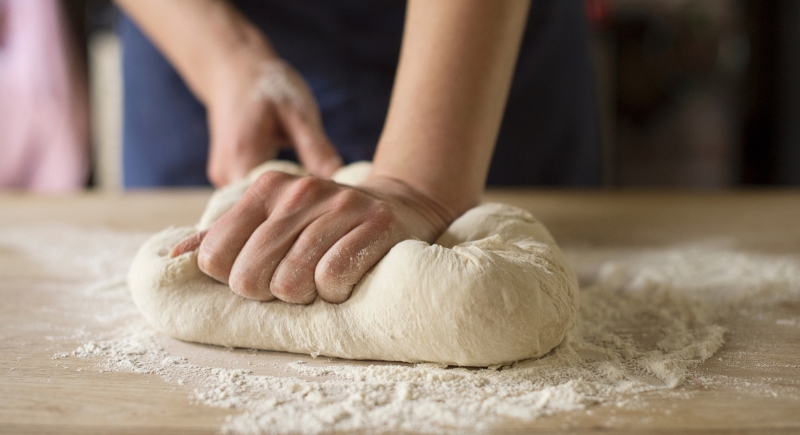The Controversial Ingredient in American Bread That Would Get It Banned in Europe
Bread is a staple on just about every table in America. Yet, some of the same loaves that fill U.S. grocery aisles would be illegal to sell in Europe. The reason is that certain additives in American bread and snacks that other countries have decided are too risky for human consumption. Here’s how.
The Yoga Mat Chemical And The FDA’s Reconsideration

Image via Canva/Africa images
One of the most widely discussed culprits is azodicarbonamide, also known as ADA, often referred to as the “yoga mat chemical.” It’s been used in bread to make dough softer and puffier, just as it’s used to make foam rubber more flexible in products like yoga mats and flip-flops. For decades, the FDA has approved ADA as safe when used in small amounts. However, that long-standing approval is now under review.
Other countries banned ADA years ago. The European Union, China, India, and Australia all removed it from their food supply after studies found that it breaks down into chemicals like semicarbazide and urethane, which have been linked to cancer in lab animals. Even though Americans are exposed to tiny amounts of ADA through food, health experts say more research is needed to know if there’s any long-term risk.
The Environmental Working Group once found ADA in nearly 500 U.S. products, but that number has since dropped to around 55, as many companies have phased it out. The FDA’s renewed focus could lead to a full ban and finally bring the U.S. in line with other nations.
Bright White Problem
Another controversial additive is titanium dioxide, which is often used to make foods appear brighter and whiter. It’s common in candies like Skittles, Nerds, and M&Ms in North America, but those same brands skip the ingredient in Europe.
In 2021, the European Food Safety Authority banned titanium dioxide after concluding it couldn’t rule out DNA damage from consuming it.
Meanwhile, Health Canada and U.S. regulators still permit its use, stating that there’s no clear evidence it harms people. Critics argue that companies should err on the side of caution and offer titanium dioxide-free versions everywhere, not just where the law requires it. Thomas Galligan from the Center for Science in the Public Interest said, “Food companies don’t need to wait for regulations to do the right thing.”
America’s Bread Dilemma Runs Deeper

Image via Canva/Science Photo Library
Then there’s potassium bromate, a dough-strengthening chemical that helps bread rise higher and bake evenly. It’s banned in Europe, China, and India, but still used in the U.S. and appears in over 100 bakery products. Studies have linked it to cancer in animals, and experts like Professor Erik Millstone from the University of Sussex believe it’s likely contributing to health problems in humans, too.
The FDA insists that when used properly, potassium bromate converts into a harmless compound during baking, though it admits some residue might remain.
Different Rules, Different Risks
The big difference comes down to philosophy. European regulators follow the precautionary principle, which means they avoid using chemicals until they are proven safe. The U.S. takes the opposite stance and assumes substances are fine until proven harmful.
As the FDA rethinks decades-old rules, some Americans are starting to ask the same question Europeans already answered: Should bread need a chemistry degree to understand?